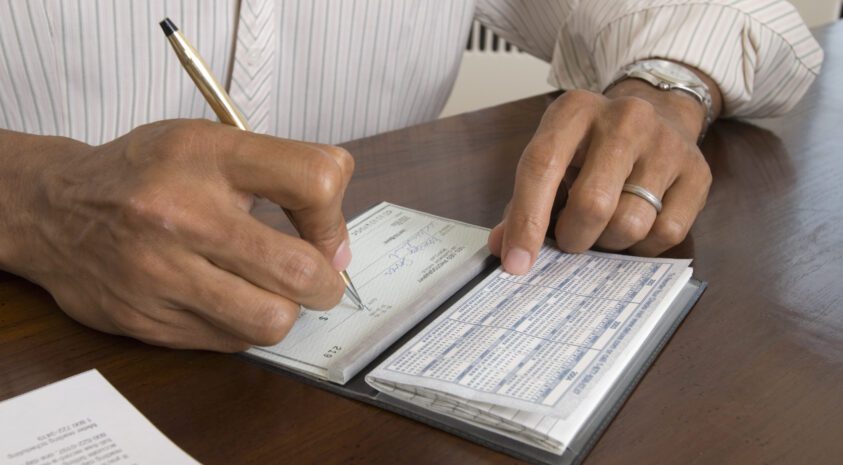Last year, more than $10 billion was lost to fraud. With rising financial scams in the United States, Americans want to protect themselves and their money. While there are many types of financial fraud and scams, let’s walk through one of the most prominent and timeless scams: Check Washing Fraud. We will explore what it is, how to avoid it, and what to do if you become a victim.
What is Check Washing Fraud?
Check washing occurs when a thief cashes a check fraudulently. In a check-washing scenario, checks can be stolen from mailboxes and then altered with chemicals or false copies. Postal inspectors recover more than $1 billion in counterfeit checks every year related to this scam. Protecting yourself from check washing fraud takes a few intentional steps.
How Do I Avoid Check Washing Fraud?
Knowing the threat of a financial scheme exists is step one. Step two is to determine how to best set yourself up to avoid this financial fraud in the future. There are a variety of steps to take to prevent check washing fraud.
Retrieve Mail Frequently and Promptly: Ensuring your mail is monitored will reduce your chances of falling victim to this scam.
Hold Mail at Post Office: If you happen to be traveling and not able to retrieve mail frequently and promptly, consider having your mail held at the post office. This keeps any checks you may be expecting safe and secure until you return.
Keep Important Details Off of Checks: Keep phone numbers, social security numbers and other personal information from being displayed on any checks.
Consider Sending Mail via Post Office: To reduce the time checks spend in your personal mailbox unattended, try sending valuable mail through the Post Office to ensure security.
Contact Sender if You Don’t Receive Mail: If you are expecting to get a check and haven’t received it, be sure to contact the sender. This way you can check and see if the check has been cashed or is still out for delivery.
Working to control these elements can help safeguard your finances, your personal information and your identity. In other cases, fraud finds a way. Let’s discuss the steps to take if you become a victim of check washing.
What Happens if I Am a Victim of Check Washing Fraud?
Sometimes fraud happens even with the utmost precautions. If that occurs, we are here to walk you through a couple of steps to take. If you suspect check washing fraud, consider taking these next steps:
- Contact Police: Report the fraudulent behavior
- Contact Your Bank: Request copies of the frauded check
- Contact the United States Postal Inspection Service (USPIS): Report fraud and follow the steps provided by the USPIS
We’re here for you!
Bankers Life is here to help customers with their financial and insurance needs so please visit us at BankersLife.com to learn more.
Bankers Life Securities, Inc., Bankers Life Advisory Services, Inc., and their representatives do not provide legal or tax advice. Each individual should seek specific advice from their own tax or legal advisors.
This material is for general information only and is not intended to provide specific advice or recommendations for any individual. There is no assurance that the views or strategies discussed are suitable for all investors. To determine which investment(s) may be appropriate for you, please consult your financial professional prior to investing.
Bankers Life is the marketing brand of various affiliated companies of CNO Financial Group including, Bankers Life and Casualty Company, Bankers Life Securities, Inc., and Bankers Life Advisory Services, Inc. Non-affiliated insurance products are offered through Bankers Life Securities General Agency, Inc., (dba BL General Insurance Agency, Inc., AK, AL, CA, NV, PA).
Securities and variable annuities offered through Bankers Life Securities, Inc. Member, FINRA/SIPC (dba BL Securities Inc., AL, GA, IA, IL, MI, NV, PA). Advisory products and services offered by Bankers Life Advisory Services, Inc. SEC Registered Investment Adviser (dba BL Advisory Services, Inc., AL, GA, IA, MT, NV, PA).
Investing involves risks including possible loss of principal. No investment strategy or risk management technique can guarantee return or eliminate risk.
Investments are: Not Guaranteed—Involve Risk—May Lose Value.



